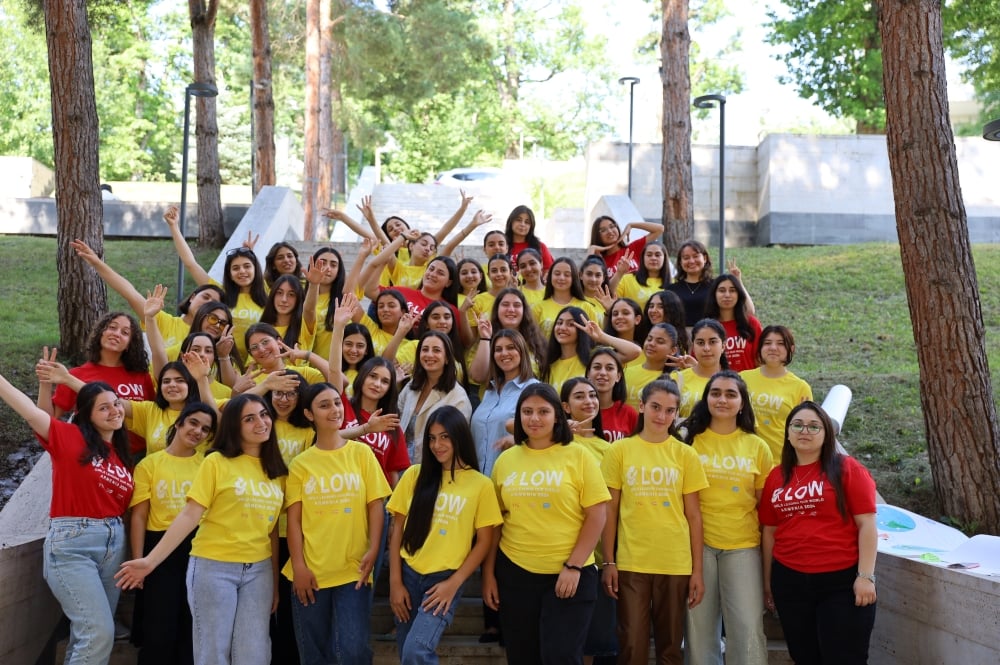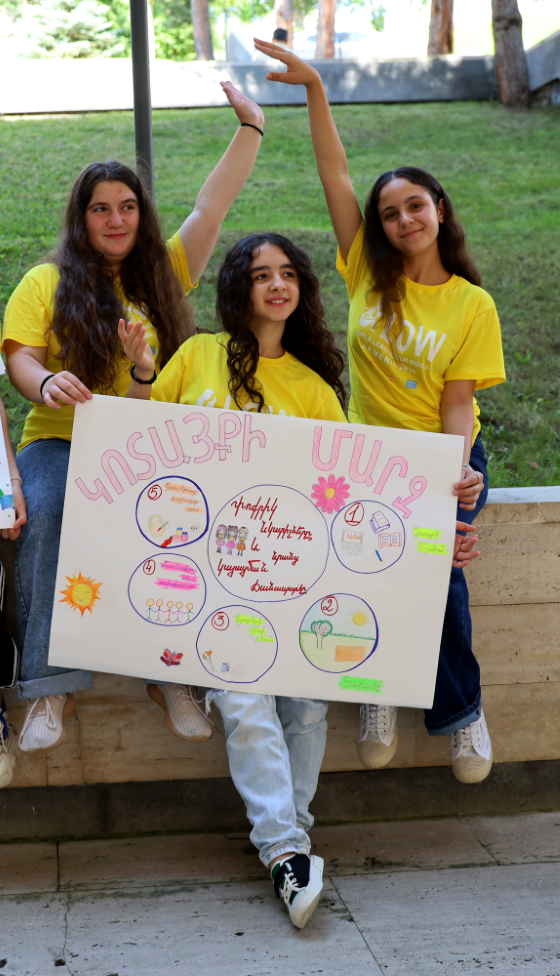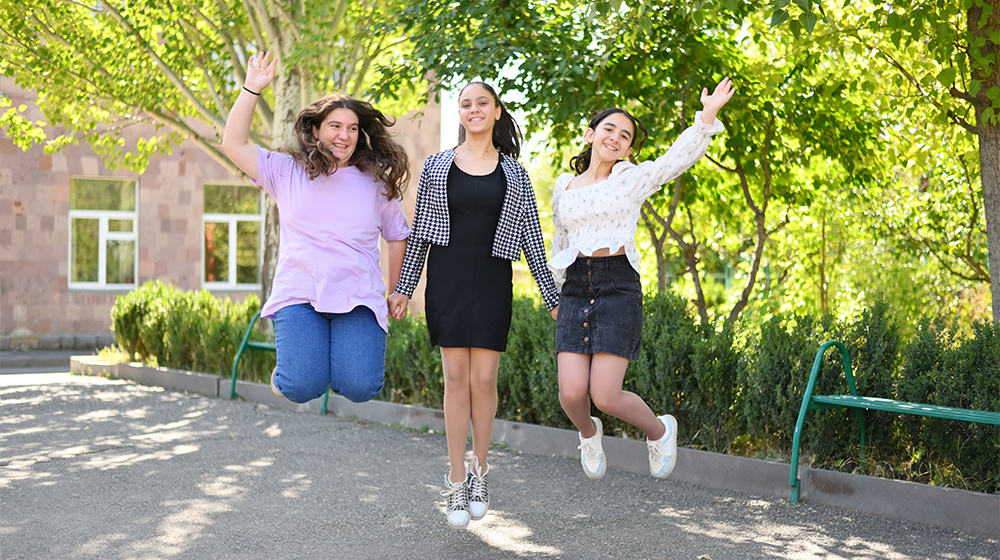“When I see someone in need, I feel compelled to act. I want to find solutions. How can I support them? What should I do?” These are the heartfelt words of 14-year-old Inna, as she opens up during our conversation.
"Last year, when we were still in Karabakh, there was a blockade. The elderly couldn’t go out to buy bread or stand in line for food. So, we, the young people, took their place in the queues every day. There was also an organisation providing them with food—soup, bread, and some fruit. We took these items and delivered them to the grandmas and grandpas. The next day, we’d go back to retrieve the empty jars," Inna recalls.
Despite her young age, Inna Atayan has a remarkable sense of responsibility. Even now, in Armenia, she continues to support those in need. “We take medicine from the hospital and deliver it to people undergoing treatment. It gives me hope that, with my small contribution, I can make life a little easier for them. I feel a sense of peace knowing I’ve done something good and useful that day.”
We met Inna in the courtyard of Arinj Secondary School, where she was with her friends Susanna and Nare. The girls first met this summer at the GLOW camp, where 40 girls from different regions of Armenia gathered for seven days to learn about leadership, human rights, civic engagement, volunteerism, health, the environment, and more.

As part of the project, Inna’s team was one of six that received funding to bring their ideas to life. The GLOW camp was implemented by UNFPA and UNICEF in partnership with the Gyumri Youth Initiative Centre.

“Each of us had different ideas for our project,” Inna explains. “Then we sat down together, and with the help of our friend Mariam, we chose Susanna’s idea but in a way that would involve all three of our communities.”
Their project, titled "Young Painters and the Path to Creation," teaches young people to paint on eco-bags. The girls shared responsibilities: Susanna led the painting lessons, while Inna and Nare handled the organisational side.
When we visited their workshop, it was the final session, and the participants’ work was nearly complete. The atmosphere was lively, with everyone proud of their progress.
Susanna Danielyan, from the village of Katnaghbyur in the Kotayk region, admits,
“At first, I was nervous about leading my peers. I was really anxious during the first class. But we prepared beforehand—calling each other, planning our steps, and deciding who would do what.” Susanna also encouraged young people from her village to participate. “Now, I’m thinking about organising something fun for the younger kids, aged 5 to 10.”
Nare Sargsyan, originally from Chartar in Karabakh, helped find a venue for their classes.
“When we arrived here, we were warmly welcomed by the classmates, the headmaster, and the teachers. The headmaster supported our programme and gave us a classroom at the school. I learned from GLOW that even a small project requires a lot of effort and dedication. It’s not easy to implement.”
For Inna and Nare, the camp and project held special significance. Displaced from Karabakh, they made new friends and started adjusting to their new environment through this shared experience.
When the girls talk about their dreams, Nare is more reserved. She quietly shares her aspiration to become a lawyer and adds, “I want to return to Artsakh again.”
Inna, however, is more expressive. “It’s hard to adjust to new people and surroundings after spending nine years with the same classmates. While I’ve made friends here, I still miss my old school, my favourite class, and my teacher. My school taught us stability, confidence, and be concentrated. I miss so much—especially my grandmother’s house, which is dear to me. On the last day before we left, I filled a small jar with soil from the yard, took a toy given to me by loved ones, and brought my pillow with me.”
The experience of war has deeply affected Inna.
“During the war, I constantly worried about my parents. Even now, I’m afraid to let my close people go. Since childhood, I’ve wanted to be a doctor. In 2023, during the war, we could hear gunfire from our home and saw wounded and deceased people being brought down. That’s when I decided that —I had to help those people. My decision to become a doctor became more certain. Many friends and family members were killed or injured, and I realised just how valuable life is. I also want to work in conflict zones to help those in need,” Inna says.


